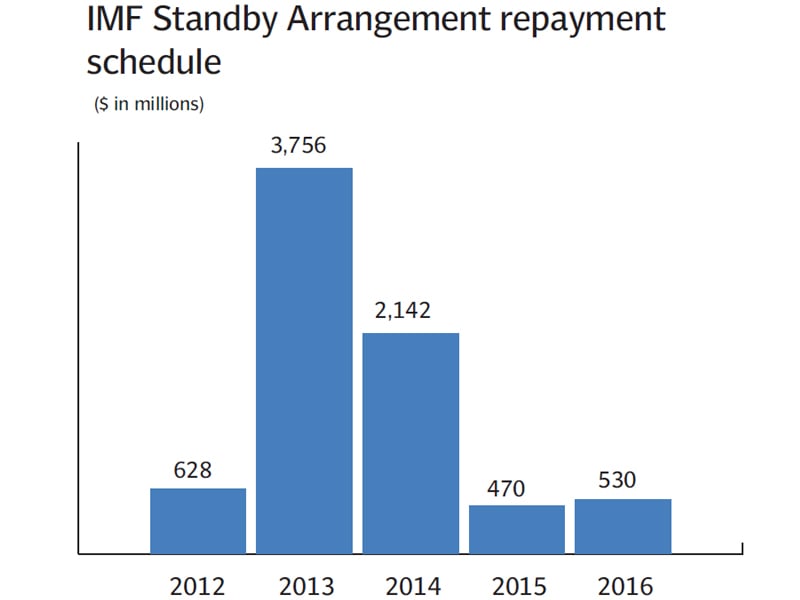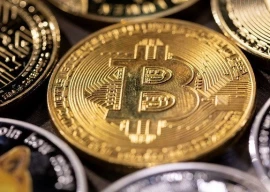
After much fanfare and a literally last-minute selection of a finance adviser, the Pakistan delegation had a series of meetings with International Monetary Fund officials in the US. Considering Pakistan’s looming balance of payments crisis, the general assumption was that the agenda would rotate around the request for a fresh IMF package. After all, that has usually been the reason for a meeting with any of the global lenders.
What came as a surprise perhaps for many was that the IMF apparently offered $5 billion to Pakistan, but Pakistan said that it was not interested. This is all the more surprising considering that every government has gone to the IMF asking for some kins of an arrangement.
So why does the caretaker government want to pass on this offer by the IMF? Apparently the rationale behind it is that the interim government does not want to shoulder the responsibility of accepting any terms or conditions that will of course be linked to the IMF package. Putting it bluntly, the interim government does not want to make the tough decisions that are needed to rescue the economy, decisions that will not go well with the incumbent government.
The reforms most likely to be linked with any future agreement with the IMF will definitely include measures to increase the tax base, including implementing agriculture tax – a move that is strongly opposed by the rural elite – which stands to create a rift between urban and rural members of mainstream political parties.
The other key condition will be power reforms, including the complete phase out of power subsidies.

It is easy to blame the IMF for the country’s problems – or the World Bank for that matter - but in reality the country’s problems stem from bad governance. A start-stop, one-tranche, multiple waivers, target re-set, abandon, rollback, cook-the-books approach to adjustment will not work. No economy can grow steadily under these unsettling and chaotic circumstances. If this paradigm does not change, Pakistan will lurch from one crisis to the next as it has done for more than six decades and fall further behind its regional peers and other developing countries many of whom faced similar, if not more severe, balance of payments difficulties. They accessed IMF resources, took bold measures to reform and restructure their economies, and moved on.
In any event, nothing is to be gained by placing all blame at the IMF’s doorstep, although countries are inclined to use the IMF as a political flack-jacket to deflect criticism and Pakistan is no exception. The IMF has not played a role in, nor contributed to, the many egregious examples of our incompetence, mismanagement, non-implementation, programme interruptions and programme failures. That has been entirely of our own doing.
It is clear the government wants a fresh IMF package, it needs a new IMF package, but does it have the political will to bite the bullet and make the tough calls?
Published in The Express Tribune, April 29th, 2013.
Like Business on Facebook to stay informed and join in the conversation.
COMMENTS (8)
Comments are moderated and generally will be posted if they are on-topic and not abusive.
For more information, please see our Comments FAQ


1725612926-0/Tribune-Pic-(8)1725612926-0-165x106.webp)














The last two paragraphs of this article are actually lifted verbatim from a research paper by Meekal Aziz: http://www.pide.org.pk/pdf/PIDELectureSeries/The%20IMF%20and%20Pakistan%20Seminar%20PIDE%20expansion.pdf Compare the first and third paragraphs of the research paper with the third- and second-last paragraphs of this article. Exact words. It's a copy-paste job.
@Logic: Yep that is true. That is why they should be phased out. Pass on the true cost of electricity and consumers will adapt.
There is an old fashioned word for it, "plagiarism."
IMF and WB have always been blamed for the current situation of Pakistan. This is not correct, not even a single percent of this is correct. Every creditor would like to make it's loan recovery possible and for that it may impose any conditions. Besides that what IMF and WB are asking for, RGST and agri-tax, would bring a financial discipline to Pakistani economy which has been running on the taxes paid by the poors ever since the country came into being. IMF never offers a country any finance and criticizing them is in not correct! That has been entirely of our own doing, well said indeed!!
Mr Baig,
I am disappointed in you for quoting verbatum my words starting with "It is easy to blame the IMF......" all the way down, without citation.
The graph suggests that we just need to pass the tough year of 2013 and things will start improving. Oil prices will come down and so will be the import bill. This looks sustainable imo..
"So why does the caretaker government want to pass on this offer by the IMF? Apparently the rationale behind it is that the interim government does not want to shoulder the responsibility of accepting any terms or conditions that will of course be linked to the IMF package. Putting it bluntly, the interim government does not want to make the tough decisions that are needed to rescue the economy, decisions that will not go well with the incumbent government."
The announcement from IMF has been is that it has not received any formal request for a standby agreement and it cannot offer a loan withut getting a formal request. http://in.reuters.com/article/2013/04/24/imf-pakistan-idINDEE93N0GK20130424 . So it is unclear how Amjad Khan claimed that he was offered $5 billion but refused.
power subsidies funded by inflation tax are making the poor pay for the rich